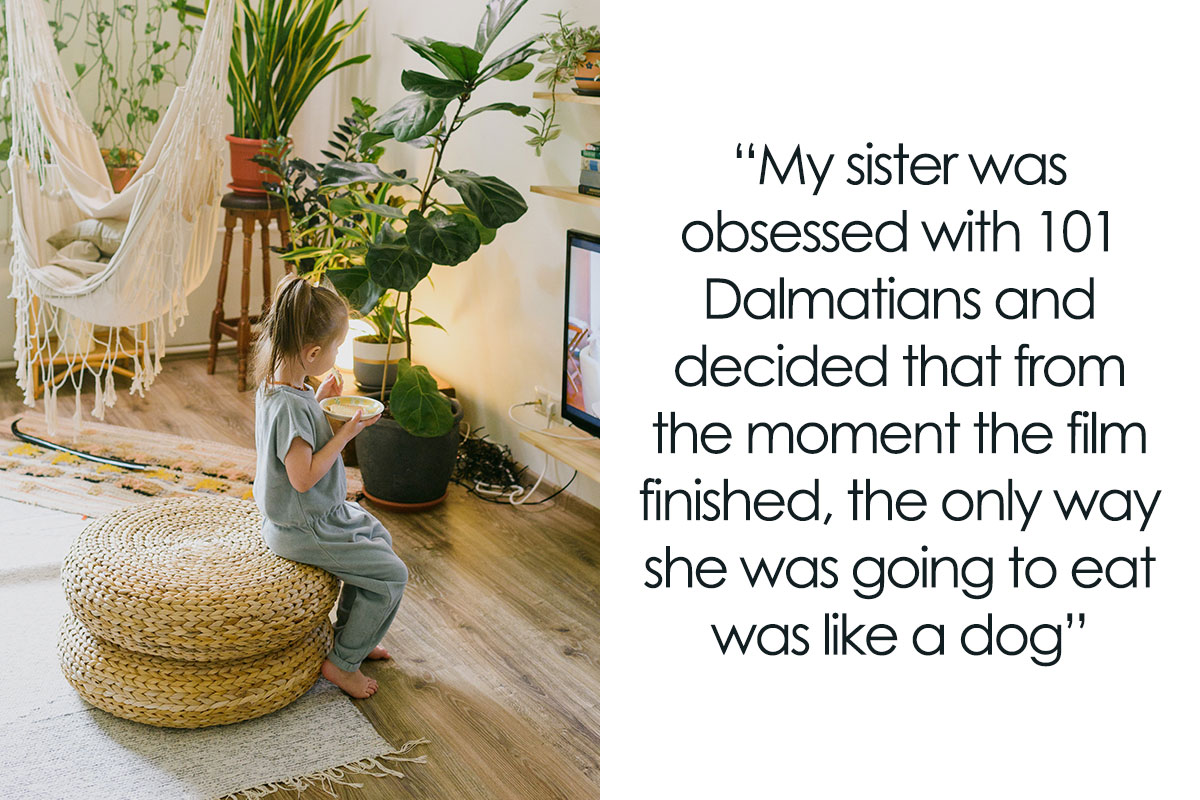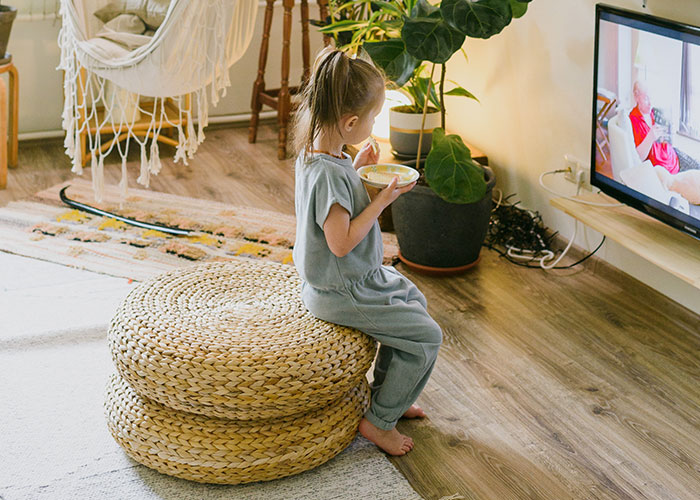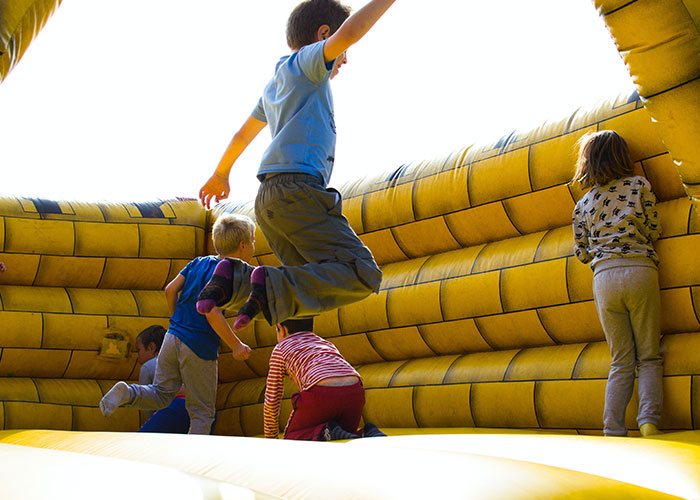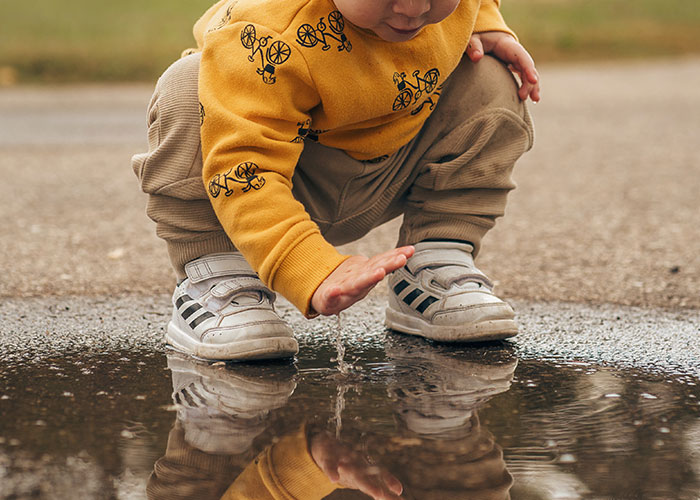
8-Year-Old Refuses To Eat At The Table And Will Only Eat Like A Dog, Fed-Up Mom Decides To Take It One Step Further
Most parents can confirm that there are some weirdly hilarious phases that our little ones tend to go through. The ‘painting with poop’ phase or pretending to be their own imaginary friend. You know, the classics.
Well, here’s an interesting one for you. As u/thatogololo recently shared in the “Malicious Compliance” community, ever since she and her little sister watched 101 Dalmatians, all she wanted was to be part of the pack. And while that may sound cute and funny at first, it took a weird turn when she declared she was renouncing table manners and ‘human’ food. Oh, the mom wasn’t happy but she quickly took matters into her own hands by maliciously complying.
After watching 101 Dalmatians, one child decided to fully dedicate herself and be just like the dotted puppers
Image credits: Ksenia Chernaya (not the actual photo)
Even if that means not giving a heck about table manners and ‘human’ food
Image credits: Bethany Ferr (not the actual photo)
Image source: thatogololo
Turns out, there are many benefits to reap from pretend play
Image credits: Lukas (not the actual photo)
In the realm of childhood, imagination reigns supreme, and the powers of make-believe hold an enchanting grip on the minds of our little ones. Step into their world, and you’ll witness a vibrant tapestry of characters, scenarios, and narratives woven together through the wondrous act of pretend play.
There’s a pretty compelling episode on this in The Simpsons (titled “Lisa the Drama Queen”), where everyone’s favorite book nerd, Lisa, becomes obsessed with the imaginary land of “Equalia” after meeting a like-minded peer. What they go through is hardcore pretend play, something that made people slowly but steadily fall in love with classic tabletop games like “Dungeons And Dragons.”
Of course, there always comes a point where pretend play goes out of hand and you realize that it’s one thing to enjoy watching 101 Dalmatians and a whole different one to be on their diet. That is, however, part of the beauty of putting yourself in someone else’s shoes (even if you’re your own imaginary friend, as confusing as it may sound for adults). According to Dr. Tracy Gleason, a professor of psychology at Wellesley College, pretending to be someone else is actually an essential developmental milestone that nurtures various cognitive, social, and emotional skills.
Driven by an innate curiosity and an insatiable thirst for exploration, children venture into these imaginative territories to make sense of the world around them. “They’re doing a lot of exploring of what it’s like to be someone else, to feel something else, to interact in different ways with other people,” Gleason, who studies children’s relationships with imaginary companions and the role they play in kids’ development, explained to Bored Panda in an email.
While it’s hard to believe – and even harder to gather factual data on – there’s plenty of emotional benefits of this immersive experience. Gleason suggests that pretend play allows children to explore their feelings, experiment with different roles, and make sense of their experiences. It may explain, then, why our little ones like to play pretend tea parties (it’s because they like to imitate their parents). So by assuming different identities, whether it’s a courageous superhero from some animated film or, let’s say, a mysterious insect whisperer (“Doctor Dolittle” but for insects!), children gain a deeper understanding of their own emotions and learn to regulate them effectively. “Any time parents have to wait in line with their children,” she suggested, “is a great chance to pretend you are doing something else.”
With playtime among kids on the decline, the act of stepping into imaginary roles becomes increasingly essential for children
Image credits: Olya Harytovich (not the actual photo)
The most important question, then, is: do children tend to gravitate towards specific animal roles during pretend play? “Sometimes children like to enact powerful roles, so they might choose to be bears or lions or anything fierce. Other times children like to be snuggled, so they might opt for anything small and cuddly, like bunnies, mice, or kittens. Sometimes, the important thing is to be active, so a child might choose to be a jumping frog,” Gleason said, noting that the choice ultimately hinges on the individual child and their prevailing mood.
In today’s digital revolution and ever-changing cultural landscape,however, the cherished role of pretend play in children’s lives is encountering fresh hurdles. With screens and virtual realities competing for their attention, there is a growing concern that the enchantment of imagination is fading away —a concern that is already becoming evident.
A recent study conducted by The Genius of Play, reveals that a staggering 75% of children are not receiving an adequate amount of playtime in the modern era. That is, of course, outside of the virtual, blocky worlds of Roblox or Minecraft. And while no relationship was found between imagination and the time spent by preschoolers playing computer games, according to one research, video games do in fact impact the creativity of teens.
In fact, it is crucial for parents and older siblings to refrain from suppressing a child’s imaginative playtime. Instead, they should actively encourage and support it. “Dr. Gleason strongly emphasized this point, highlighting the significance of not stifling a child’s imagination, regardless of the extent to which they engage in animal-like behavior.
OP’s story garnered some interesting reactions from the internet
This story also inspired others to share their similar experiences
I insisted on eating cereal like a dog, on the ground, lapping it up due to 101 Dalmatians. My mom was fine with it because who cares?
I agree. It's good to indulge in this kind of pretend play, plus the dog food wouldn't harm her for that short amount of time. Let kids be kids!
Load More Replies...When I was lil I was obsessed with dinosaurs. I tried eating leaves off a tree and that was disgusting!
My brother also went through this, wanted to sleep in the dog kennel. Mum thought it was hilarious
I insisted on eating cereal like a dog, on the ground, lapping it up due to 101 Dalmatians. My mom was fine with it because who cares?
I agree. It's good to indulge in this kind of pretend play, plus the dog food wouldn't harm her for that short amount of time. Let kids be kids!
Load More Replies...When I was lil I was obsessed with dinosaurs. I tried eating leaves off a tree and that was disgusting!
My brother also went through this, wanted to sleep in the dog kennel. Mum thought it was hilarious





























30
19